Meet an Educator is a monthly series by Early Bird, where we feature the work of educators across India who are actively spreading the joy of birds and nature. This month’s featured educator is Sayee Girdhari, a nature educator from Pune, Maharashtra. Her work involves talking about plants full-time and facilitating a connection with them.
Do tell us about yourself, where you are from, and your work?
I was born in Aurangabad (now Sambhajinagar) and currently live in Pune, Maharashtra. I get my love and curiosity for nature from my parents. In school, I loved Environmental Science and was aware of and concerned about environmental issues. When I couldn’t get into the conventional medical course, I joined the BSc course at Ruia College in Mumbai, where I fell in love with plants for life!
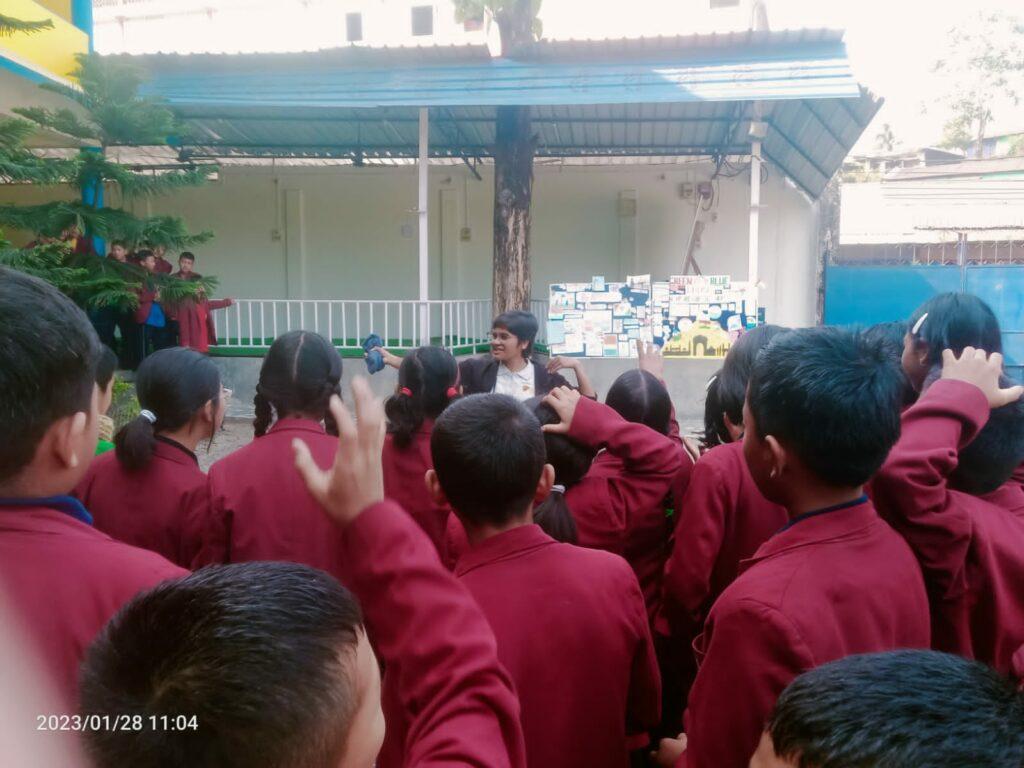
After my Master’s in Botany at Pune University, I began my career as a ‘Field Botanist’ with the Karnataka State Biodiversity Board. This was the first time I experienced different kinds of forests across Karnataka. I went on to work at an environmental consultancy, where I learned to find a common base for nature and people of various interests and priorities. All this work highlighted the need for the human-nature connection.
I currently work with the SeasonWatch project at the Nature Conservation Foundation, trying to connect people of all ages with plants through tree walks and nature education sessions.
What excites you about the natural world?
Plants, their adaptability, their incredible evolution and the fact that they sustain most organisms around them excite me. I love plant classification, their scientific names and their etymology too. I’ve always been fascinated with plants. Discovering the smell of Eucalyptus leaves, the red-coloured gum of the Drumstick tree, and witnessing the late-night blooming of Mogra flowers are some highlights of my childhood!
During BSc, my professor taught us plant classification. The way she described the morphological features of the plant specimen, with so much love, respect and admiration, I had no choice but to fall in love with plants! It also became my life’s aim to share this love and plant awesomeness with everyone.
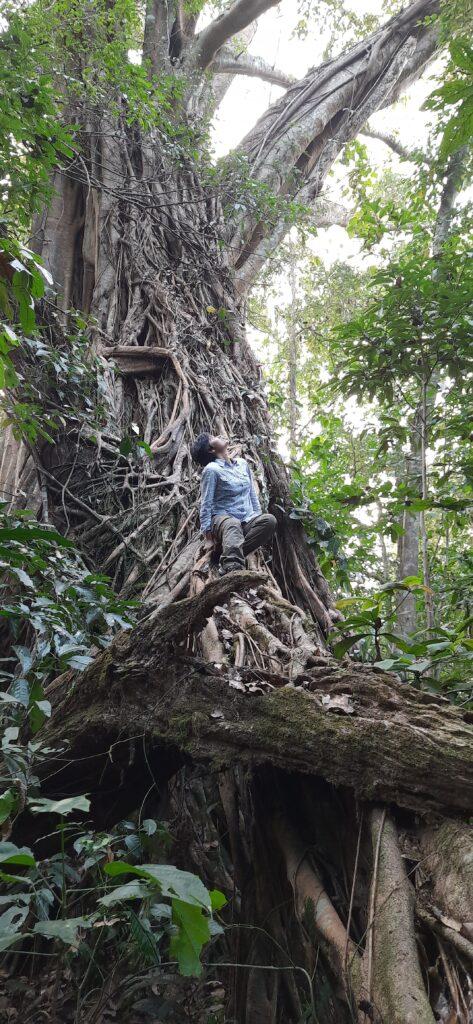
I also used to think I wanted to focus on plants and plants only. But this changed during my MSc when I accompanied my classmate on a birding trail. This classmate knows a lot about almost everything in the living world. He changed my mind about learning about plants in isolation and got me to look at birds and other animals too. Although botany remains to be my first love, I am fascinated by plant-animal interactions as well.
When and how did you get interested in bird/nature education?
Tree walks with my professor inspired me to share the awesomeness of plants with people. I wanted us all to stop underestimating the intelligence of plants, and admire and respect them. When the handful of participants on my first few tree walks listened attentively and gave good feedback, I realized I have the skills to engage people with plants and nature.
Attending the Student Conference on Conservation Science (SCCS) in Bangalore right after my post-graduation and meeting amazing scientists, artists and educators inspired me more. Working with corporates and municipal corporations further highlighted the need for nature education. I started with conducting nature trails, shore walks and assisting nature education sessions. Now with SeasonWatch, I talk about plants full-time and facilitate connecting with them.
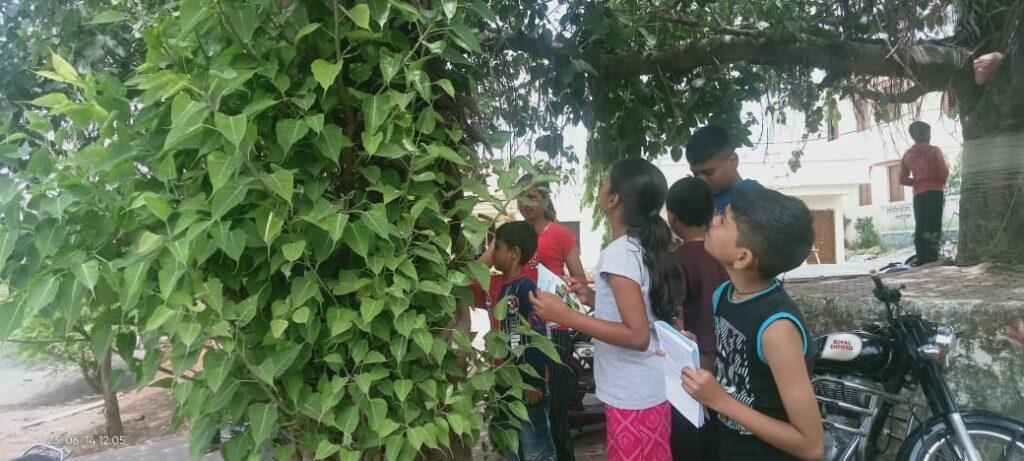
What do you hope to achieve through your education work?
I want people to be as fascinated and curious about plants as they are about birds, mammals and other charismatic beings. The education outreach by SeasonWatch provides the present and future generations a chance to connect with plants and the natural spaces around them, something that the previous generations naturally got.
We hope they learn about climate change and its impact on their immediate surrounding without feeling fear and eco-anxiety. The ultimate goal is to inspire nature conservation without having to emphasize its need and importance, to create an emotional bond with our surroundings so strong that people feel it on their own to protect their environment.
Why do you believe it is important for children to learn about birds or connect with nature?
One of my happiest memories is of the time spent in my grandmother’s garden – playing in the soil, experimenting with plants and experiencing nature. Being outdoors and developing an understanding of our surroundings is vital to feeling rooted, and feeling like we belong. Observing and studying the relationships between plants, insects, birds, etc. underlines everything in nature serves a purpose.
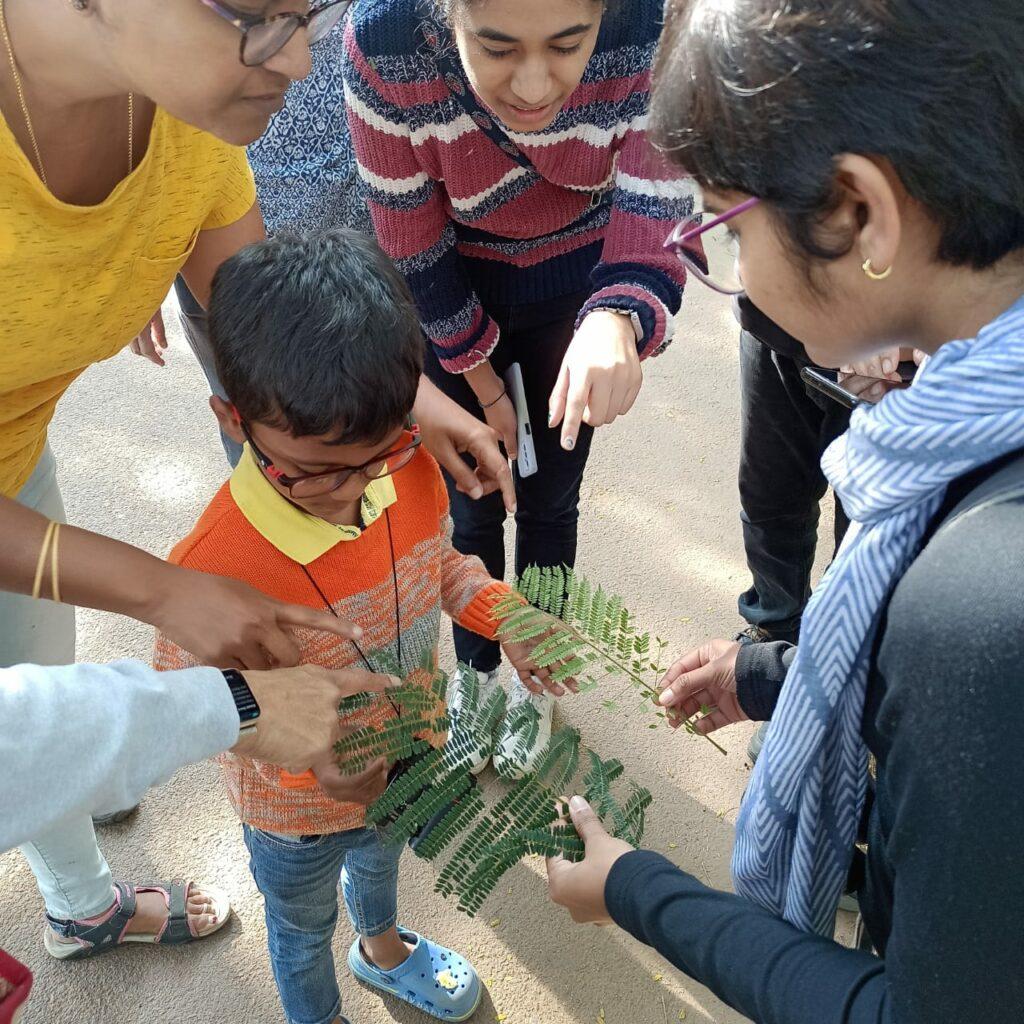
Learning about nature also helps us realize we are only a part of the ecosystem, shifting our place from the centre or at the apex of nature to somewhere among all organisms. This shift helps us become better human beings. I feel this awareness is important in bringing consciousness and mindfulness into our lives, our daily practices and choices. This is what will help pull the world a little away, if not save, from the ongoing environmental crises.
What tools or resources have helped you in teaching about birds/nature? Can you describe an approach that has worked exceptionally well for you?
I’ve learnt personal experiences and stories are most powerful to find a connection with nature. Encouraging people to reminisce on their childhood stories and experiences works like magic for an enriching tree walk. People’s faces light up when they talk about that one tree they spent their summer vacations with or when they talk about discovering something about a plant on their own.
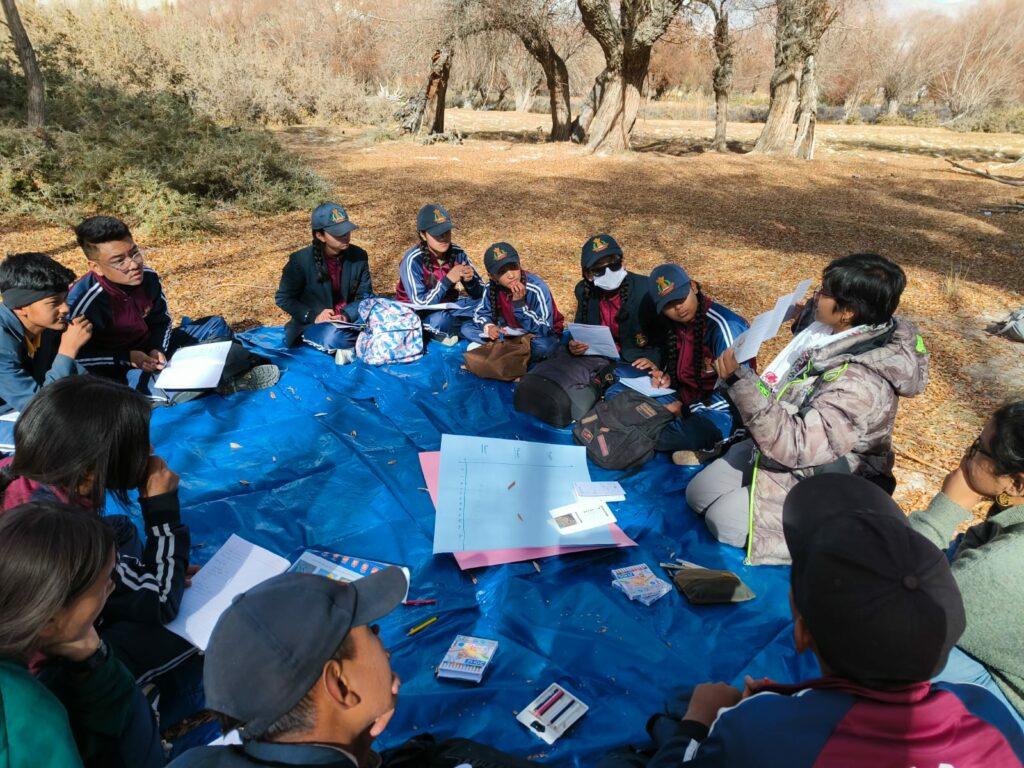
Children speak at length about the little games they play with the sticky pods of Rain Tree, sword fights and making fake nails with Gulmohur flowers, squirt guns of the buds of the African Tulip, whistles from big, thin leaves of the Peepal tree or the Pongam tree and so on! Pocket guides with beautiful colours and minimal, simple text also grab the attention very well. Games and activities involving all our senses are great tools for bringing out the excited, curious children in us!
Have you encountered a significant challenge as a bird/nature educator, how did you overcome it?
We as humans are used to seeing things in nature for our benefit. Most of our tree walks have participants who ask, “But how is this tree useful for us?” I do not want the tree walks to talk about the uses of plants but about their incredible evolution, their interesting lives and their relations with animals.
We had an elderly person join one of the tree walks. We were discussing the natural history of trees on our walk. With every tree we spoke about, this person asked about the tree’s use. Not just medicinal, but ways to earn money from it. They also called the Fishtail Palm ‘an ugly, useless tree’. That was hurtful to hear!
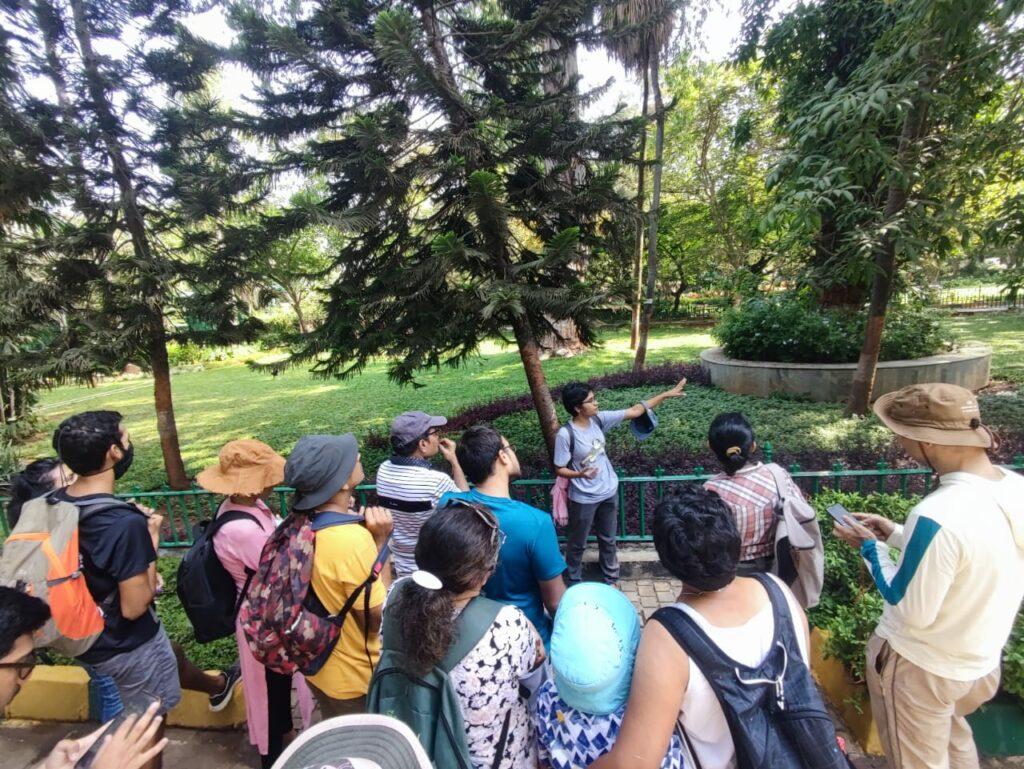
I found his attitude amusing and asked more questions about why they thought the tree was ugly. They replied with some observations about the shorter life span of the tree, towards the end of which it loses all its leaves and eventually the bare trunk has to be chopped off. All this was a nuisance in a residential area. These were agreeable points.
As the walk proceeded, other participants of the walk, too, defended trees against their remarks. They eventually stopped the comments. When the walk ended, they said they quite enjoyed the walk and knowing about the lives of trees. I was glad that instead of shutting them out, I could be curious about their opinion on trees and explore it.
Do share any memorable moment or experience you have had in teaching kids about birds/nature. Can you recall any insightful instance that shaped your perspective?
Every session I’ve done with children has been a new experience. Adults make so many assumptions about children’s capabilities and understanding. My sessions have taught me to let go of these assumptions and keep an open mind for my sessions.
An NGO and I conducted a session for children of the tribal community of Jawhar, a hamlet near Thane in Maharashtra. The goal of this session was to introduce the plants, birds and environment to the children. I prepared as usual – did a recce of the trail, noted down some facts and stories to share, etc. But as we started the trail, we realized these shy kids knew about their plants much more than I!
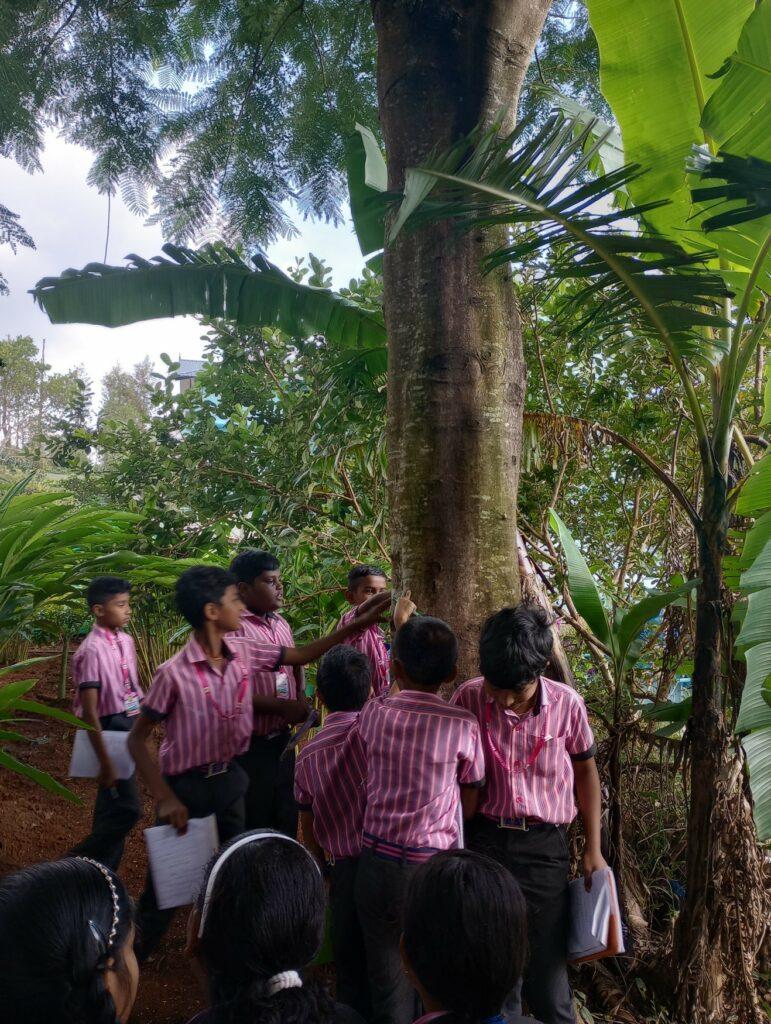
For the rest of the session, I simply pointed at some plants and the children told me about them. It was a give-and-take of traditional and scientific information. We also discussed the significance of their natural habitat. We hope to have made the children proud of their innate knowledge of nature. It was a humbling experience.
On one of the tree walks in Bangalore, a young adult joined with their parent. This kid remembered everything about plants from their textbooks, but kept calling flowers ‘another plant that grows on this tree’. This made me see the gap between the curricula and practical nature education. It was a lesson in connecting what children learn in schools to what I share in my tree walks.
Have you noticed any changes in your learners after they received exposure to birds and nature-based learning? If yes, what are they? If not, why do you think that is?
Most children have asked when will this tree walk/session happen again, which I take as a sign that they enjoyed the time spent outdoors talking about nature. Older children and adults have shared having connected the various dots of human lives, nature and climate change. Many children have also shared their wish to observe and document nature around them and take steps to mitigate climate change.
The teachers who have been observing trees with their students share with us stories of changed attitudes and feeling connected with nature. They share how children no longer find caterpillars disgusting and understand their role in an ecosystem. Some of these heartwarming stories can be found in this video.
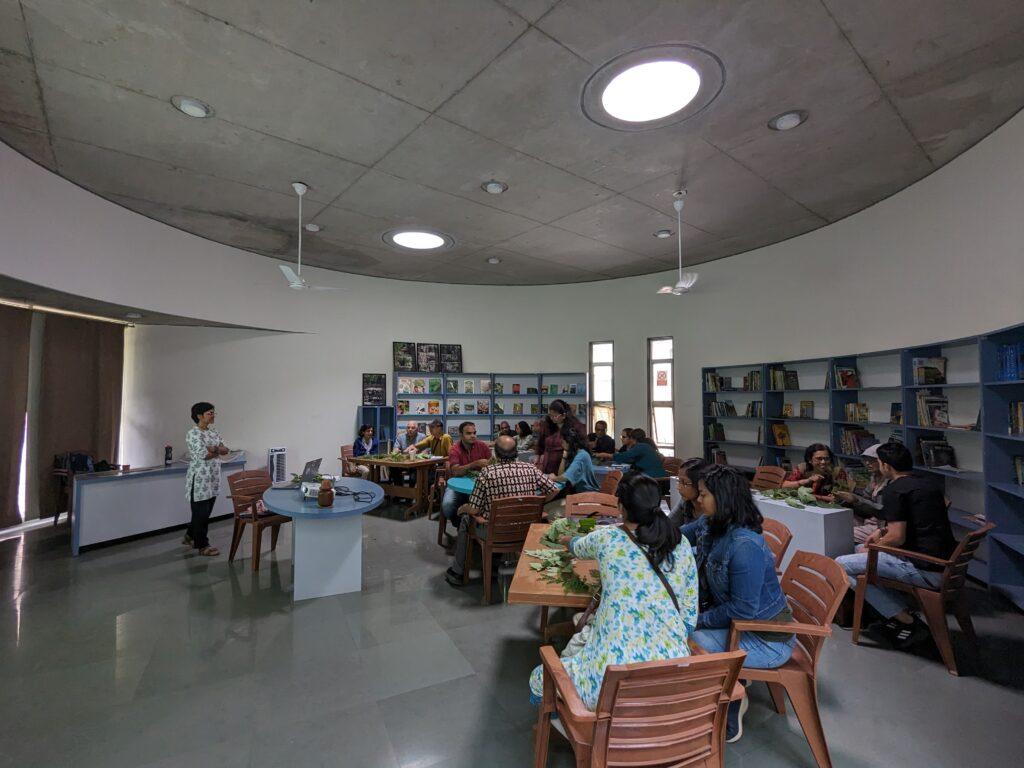
There are times when children appear disinterested and do not participate in the sessions. But when you talk about the session later, they recall most things. Learning happens in many ways and it is essential to keep reaching out and sharing. We never know what strikes a cord!
What message would you have for your fellow educators, or somebody starting out in their nature education journey?
What got me into plants was my professor showing me how to love plants. That is nature education for me – sharing your obsession with plants (or anything in nature) with people, and showing how to love them in a relevant, fun way. It is also about exploring yourself and sharing what you discover and learn with others. This ‘sharing’ can happen in any direction – from the educators to the learners as well as from learners to educators.
Creating a space to share freely our observations and experiences with nature elevates a session for everyone. Good listening, making everyone feel included and valuing their beliefs (while working to gently debunk harmful ones) are of utmost importance.
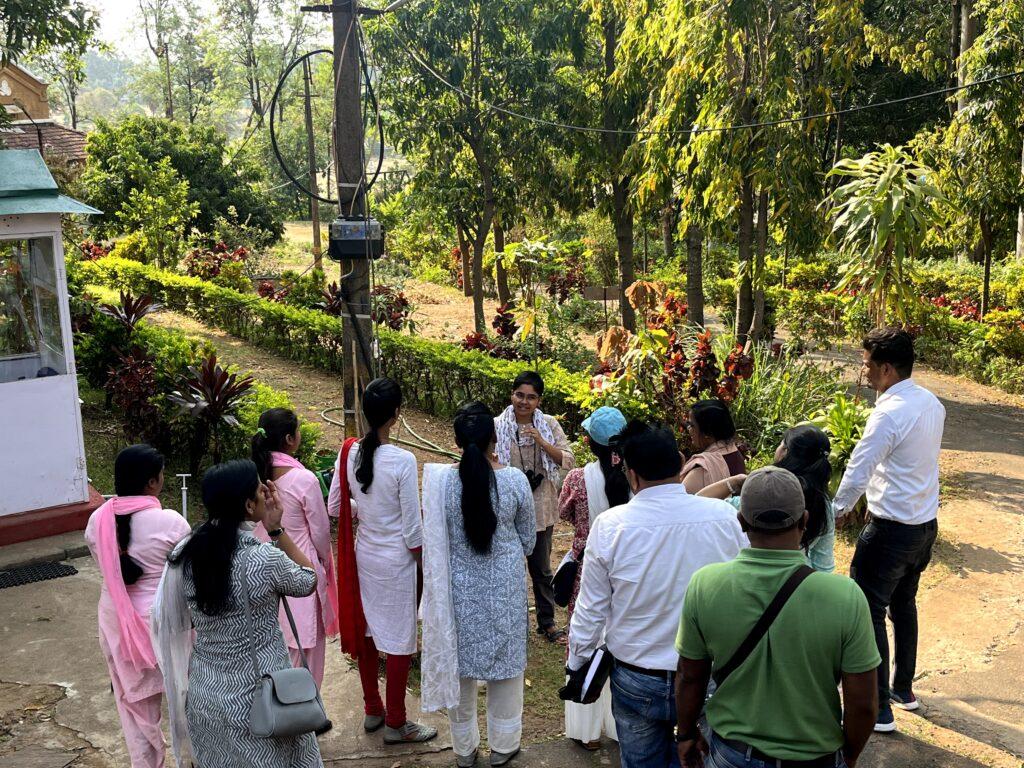
I remind myself it is impossible to know everything about plants and nature. So, it is okay if we don’t know something, it is okay to admit it too! This takes the pressure off my mind and helps me facilitate a relaxed, enriching session. One of my aim is to also encourage more resource persons and nature educators so that more and more people can go on tree walks and connect with nature. Keeping this goal also helps us share freely what we’ve learnt, for the greater good!

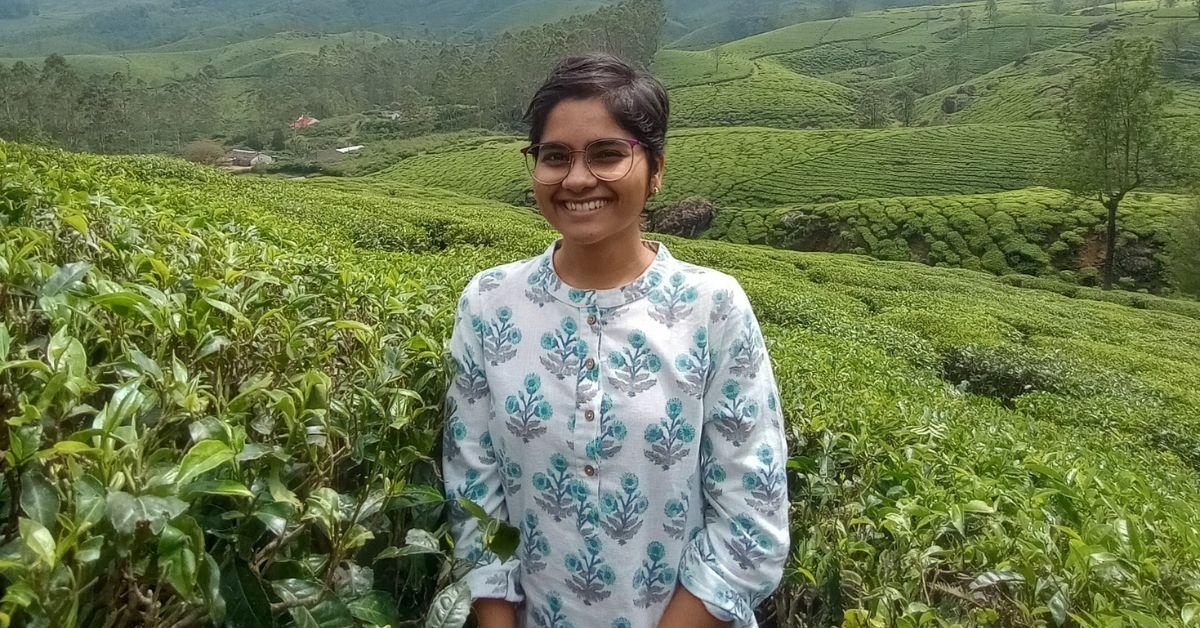
how nice!! truly says a lot about the passion for nature and trees that Ms. Sayee Girdhari has. I aspire one day to gain such an emotionally-observant and understanding nature.